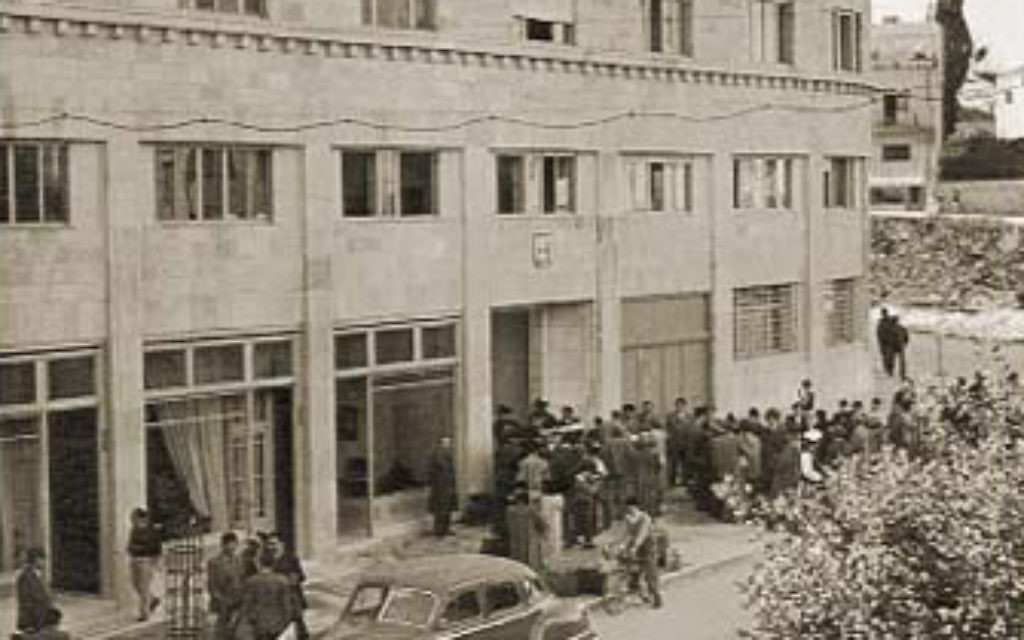Sixty-eight years ago, on Jan. 23, 1950, the Knesset voted to declare Jerusalem the capital of Israel. That vote did not anchor Jerusalem’s status in Israeli law — that would come in 1980 — but the proclamation was a strong statement about the centrality of Jerusalem in Jewish history and its importance to the new country.
This moment in the early years of Israeli statehood is helpful in understanding the Jerusalem issue today. The city has been thrust into the spotlight by President Donald Trump’s announcement last month about moving the U.S. Embassy and by Palestinian Authority President Mahmoud Abbas’ speech to the PLO on Jan. 14.
After the 1948 War of Independence, Jerusalem was divided by the armistice agreement negotiated between Israel and Jordan. In December 1949, the U.N. General Assembly reiterated its desire from November 1947 for Jerusalem to be placed under a separate, international regime by passing Resolution 303.
Get The AJT Newsletter by email and never miss our top stories
Free Sign Up
While the debate on Jerusalem was taking place at the United Nations, the Knesset took up the issue. Menachem Begin, the leader of the opposition Herut party, while applauding Prime Minster David Ben-Gurion for proclaiming “Jewish Jerusalem will never again accept alien rule,” took an even stronger stance.
Begin said: “The representatives of other countries must be told quite clearly that the Jewish nation has made its decision concerning Jerusalem. … The acknowledgment of the existence of ‘Jewish Jerusalem,’ implying that some other Jerusalem exists, has enabled other nations to conclude that some parts of the nation are prepared to relinquish certain sections of the city. This must stop.”
Three weeks later, the Knesset met for the first time in Jerusalem, and discussions began the next month on whether to legally anchor the city as Israel’s capital. Begin favored legislative action including reference to all the city, even that part under Jordanian control, while others felt that no additional action was necessary after the government had moved the Knesset to the capital.
The compromise was the resolution passed Jan. 23, which stated, “Whereas with establishment of the state of Israel, Jerusalem once more becomes the capital; Whereas practical difficulties which caused the Knesset and government institutions to be temporarily housed elsewhere have now for the most part been removed and the government is carrying out the transfer of its institutions to Jerusalem …”
Responding to criticism that the resolution was not sufficient, Ben-Gurion said the declaration “stressed only a series of facts — historic facts and actual deeds that had been accomplished — it did not outline aspirations.”
At the same time a motion to locate all government offices in Jerusalem was defeated. The prime minister outlined why he was opposed to moving the Foreign Ministry specifically: “We do not want to cut ourselves off from the world — not from Russia, nor America, nor Czechoslovakia (Israel’s primary arms supplier at the time) — who have sent their ministers to Israel if not to its capital.”
Just as today, while there was mostly consensus about Jerusalem’s status as Israel’s capital, there was debate over the nuances of the issue and how the decision could affect the young Jewish state’s relations with foreign powers. In 1980, Jerusalem would be legally declared the capital when a Basic Law was passed July 30. The Center for Israel Education has compiled a Jerusalem timeline that can help you learn more about the history of the city and this evolving issue.





comments